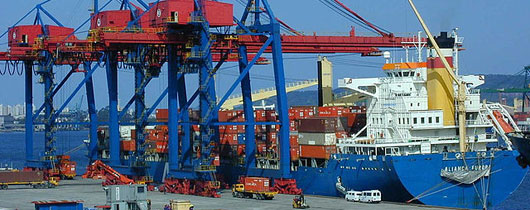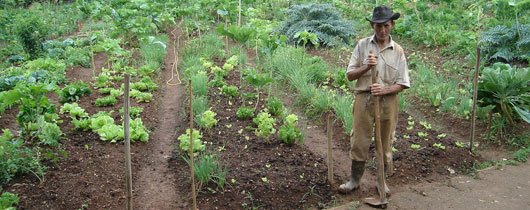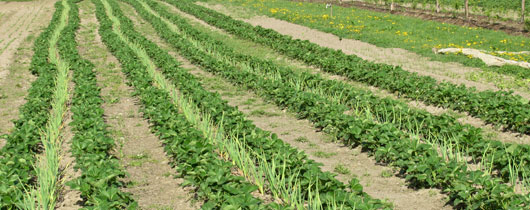
Santos Port strike affects 15 ships and goes to trial

The Regional Labour Court of São Paulo (TRT) decided to prosecute the strike carried out by surprise and started by foremen and stevedores of the Port of Santos on Wednesday. The Public Ministry of Labour (MPT) filed the same day the collective bargaining agreement that called for the illegality of the strike and immediate return to work.
At the time, 33 vessels were moored while 45 were anchored in the bay at the entrance waiting for authorization to enter the harbor. To avoid large losses, some terminals were able to operate even without the professional stowage, which is considered risky action, since, by law, the terminals can only operate with these workers.
Unions strike broke out last Tuesday in response to the determination of MPT to deploy a new system of scales, since the entity does not accept the way in which work schedules are made. The measure proposes a balanced division of work in Santos, resulting in an average compensation of $ 3,500 per employee, ending the disparity in wages, some workers earn between R$15,000 and R$27,000 per month, while another mass of freelance workers wins R$1,500. Of the 7,000 registered temporary workers in Santos, only 4,500 work regularly.
For the 8630 law, enacted in 1993, the distribution of casual work in Brazilian ports can only be made by OGMO (Governing Body of Labor), the RH port. The Santos port complex accounts for 25% of Brazil’s foreign trade.
Fonte: Guia Marítimo
Producers expand production by 50% with incentive

Farmers in the city of Araraquara (SP) come to increase their plantings by 50% with the Food Purchase Program (EAP), from the Ministry of Social Development and Hunger Combat (MDS). The benefit passes grants for municipalities to purchase greens and vegetables from local farmers.
Araraquara is considered a reference in the program, deployed in 145 cities. “It’s a good execution due to the involvement of producers and technical supervision they receive from the City itself,” he said on Thursday (31) the general coordinator of the PAA, the Ministry of Social Development, Helenita Correia da Silva, during a visit to one of farms benefit from the program. The coordinator remains in the city on Friday (1) to discuss further details with managers of the PAA.
Of the 700 farmers in Araraquara, 300 participate in the EAP, which helps in the distribution of greens and vegetables to 60 entities in the city. According to Coordination of Agriculture, 28 tons of product are intended to those institutions weekly.
For farmer Roberto Matheus, production at its site rose 50% because there are more safeguards for farming. “We risk and invest more, because we have security of supply,” he says.
At his estate, 20% of what is produced, among pumpkins, eggplants, cabbages and peppers, are acquired by the program. He believes that the share could be higher. “The quota that can be purchased from each farmer is still small,” he says.
The coordinator of agriculture in Araraquara, Cristiano Rumaqueli, explains that the quota that can be purchased from local producers is fully supplied, but recognizes that the city could buy more.
“We’re trying to increase that quota” says the coordinator. Currently, the city gets R$1.7 million per year to producers enrolled in the EAP, with funds from the National Supply Company (Conab).
Earlier this month the company announced that it will have more than R$205 million to buy food, till July this year across the country.
Fonte: G1
Court ruling puts an end to two-day strike at the Port of Santos

After two days of downtime, the 7000 temporary workers from the Port of Santos returned to the activities on the morning of May 31. A decision of the Regional Labor Court, given on the evening of day 30, determined that the transactions be maintained with at least 70% of actual convened by the Governing Body of Labor (OGMO), the entity responsible for controlling the work shifts in the harbor. The fine imposed on the unions, in the case of noncompliance with the sentence, was set at R$100,000 per day.
The workers went on strike to protest a Term of Conduct Adjustment (TAC), signed by OGMO and the Public Ministry of Labour (MPT), which determines the end of the double-journey and requires the port workers to fulfill 11 hours of rest. According to the Union of Operators and Workers in Santos Port (Sintraport), the rule undermines the workers, because it believes that they get to spend days off work due to lack of demand.
According to the court, 301 workers entered on the scale starting immediately. However, the Dock Company of São Paulo (Codesp) announces that, due to the rain that falls in the city of Santos, the operations are occurring in only eight of 32 docked ships. More than 45 vessels waiting to berth at anchorage area, which is a kind of parking.
Fonte: Exame.com
With investment anf agriculture falling, GDP rises 0.2%

With agriculture and investment falling, the Gross Domestic Product (GDP) of Brazil grew only 0.2% in the first three months of 2012 compared to last quarter of last year, stated IBGE. During the period, GDP totaled R $ 1.033 trillion, in current values.
The low growth of the Brazilian economy was already taken for granted by the market, providing a positive variation of 0.3% to 0.5%. Comparing the first quarter of this year to same period of 2011 GDP, the sum of goods and services produced by the country, recorded a rise of 0.8%.
An important part of GDP, agriculture was the segment that pulled the economy’s growth down in the production side. According to IBGE, there was negative growth of 7.3% in the first three months of 2012 compared to last quarter of last year.
Comparing January to March of this year against the same period from last year, the fall in the sector was even higher, at 8.5%.
According to IBGE, some farm products, which are relevant harvest in the first quarter, fell on estimates of annual production and productivity, such as soybeans (-11.4%), rice (-13.8%) and tobacco (-15 , 9%). The investments fell 1.8% between January to March this year compared with October-December 2011 and 2.1% year on year, reflecting the fear of companies in relation to the worsening international crisis. Also contributing to the economic slowdown the increase in imports (which have negative role for GDP because they are composed of goods produced outside the country), which grew 6.3% in the first quarter of 2012 over the same period last year.
In recent months, the price of products imported from abroad was positively affected by the overvalued exchange rate (stronger local currency). According to IBGE, exports grew 6.6% in the first quarter of 2012, largely due to currency devaluation in recent weeks.
NEWS ARCHIVE
We are always looking for the best content on the market to be published on our website. Check back regularly to learn more about the latest news and events affecting our market in Brazil and worldwide.
- June 2012 (12)
NEWS
-
18Jun
 Santos Port strike affects 15 ships and goes to trial
Santos Port strike affects 15 ships and goes to trial
The Regional Labour Court of São Paulo (TRT) decided to prosecute the strike carried out by surprise and started by [...]
-
18Jun
 Producers expand production by 50% with incentive
Producers expand production by 50% with incentive
Farmers in the city of Araraquara (SP) come to increase their plantings by 50% with the Food Purchase Program (EAP), [...]
-
18Jun
 Court ruling puts an end to two-day strike at the Port of Santos
Court ruling puts an end to two-day strike at the Port of Santos
After two days of downtime, the 7000 temporary workers from the Port of Santos returned to the activities on the [...]
-
18Jun
 With investment anf agriculture falling, GDP rises 0.2%
With investment anf agriculture falling, GDP rises 0.2%
With agriculture and investment falling, the Gross Domestic Product (GDP) of Brazil grew only 0.2% in the first three months [...]